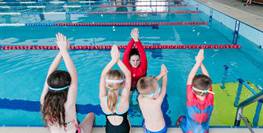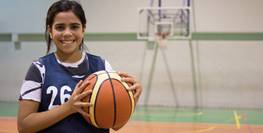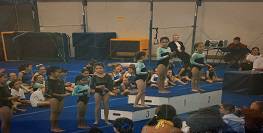
Did you know that children and young people who get suspended from school are some of the most marginalised young people in Australia?
This includes Aboriginal and Torres Strait Islander young people, young people with a disability and those living in out-of-home care.
There are very clear negative impacts on young people who are suspended from school. For many students, suspension as a disciplinary practice is not an intervention that supports them to improve their behaviour, nor does it deal with the root cause. Many of these young people end up completely disengaged from their peers, teachers, and schoolwork. Isn’t that a travesty?
Of course, disruptive behaviour in schools has negative impacts on others in the classroom. Teachers can struggle to manage challenging behaviours which can impact their wellbeing and is often a catalyst for them leaving the profession. Asking schools to deal with an issue that is often well beyond their capacity or scope is unfair. It’s challenging enough to be a teacher with thirty students let alone dealing with children and young people creating disruption.
So, what’s the answer?
Many of these young people need a trauma-informed approach. They need society to wrap their arms around them and provide the support they need to succeed in school and in life.
We need our systems and policies to have a focus on supporting the whole child, their families and our teachers. We need a focus on supporting the wellbeing of young people rather than using exclusionary practices that further marginalise children and young people.
The Y NSW Alternative Suspension program is just one example of an approach that focuses on working with young people, schools, families and community stakeholders. Launched in February 2023, this evidence-based program, which comes with success in Canada and Europe, works to support young people who have been suspended from school or are at risk of exclusion to gain the knowledge, skills, therapeutic support and referrals to additional services that they need to successfully re-engage with school and have a better chance of completing their education.
It's been inspiring to see the incredible outcomes this program has achieved. The case studies and preliminary evaluation results to date are compelling. Every week I’m hearing tons of positive stories about the life-changing impact the program is having on young people.
I’m not saying that our program has all the answers. It doesn’t. No one program does. I’m a big believer in placed-based approaches to create systemic change. This program is a piece in the puzzle when it comes to dealing with young people who are not adapting and coping in the school system and supporting the schools and families often devastated by the negative impact this creates.
This is about investing in new solutions that can support children, young people, teachers and families and improving outcomes for children and young people.
It’s time to consider doing things differently for children and young people who get suspended or are at risk of being suspended. The typical young person who is suspended from school is a 13-year-old boy. So young. But also, such a wonderful opportunity to intervene early before the downward spiral begins.
We must and can do better for our young people. I’m committed to working with others to contribute to that change. School suspensions are a social justice issue and it’s time to change the system to ensure bright futures for all young Australians.
If you’re interested in learning more about our Alternative Suspension program or how we can work together to improve outcomes for young people, please reach out.
At the Y NSW we are highly committed to working together with partners who share our vision for a brighter future for all children and young people.
 |
| Written by Louisa McKay Executive Leader Purpose & Impact for The Y NSW |
Back to news








